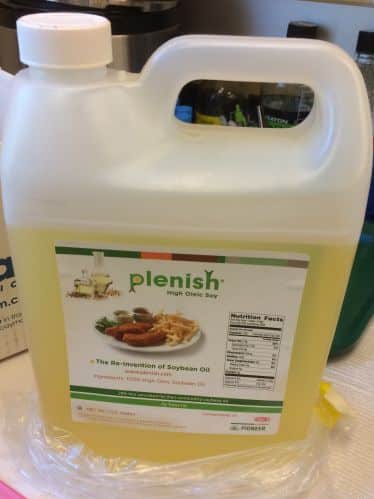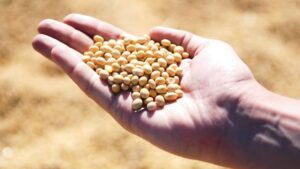Assessment shows a significant reduction in soybean industry’s global warming potential since 2010 and 2015
The United Soybean Board detailed a recent Life Cycle Assessment (LCA) that revealed a significant reduction in the global warming potential (GWP) profile of the U.S. soybean industry in 2021 for whole soybeans, soybean meal and soy oil compared to findings from 2015 and 2010. The USB- and National Oilseed Processors Association (NOPA)-commissioned study evaluated environmental impact drivers, including soybean cultivation and harvesting (such as herbicides, field operations, and fertilizer), transportation and energy usage in processing.
“USB’s mission is to create value for U.S. soybean farmers by investing in research, education, and promotion of U.S. Soy,” USB CEO Lucas Lentsch said in a release. “This research helps farmers better assess and understand soy’s contribution to environmental impacts throughout the life cycle of the entire soybean value chain. Ultimately, this data can competitively position our downstream products such as human foods, animal feeds, biofuels, and other industrial applications.”
Soybean production, a major commodity crop, continues to grow over time, contributing $124 billion to the U.S. economy. The global output increased from fewer than 50 million tons in 1970 to more than 350 million tons in 2020, with the U.S. being one of the largest producers and the second-largest exporter. Soybeans also account for about 90% of U.S. oilseed production in the agricultural sector.
The LCA study, conducted by Sustainable Solutions Corporation (SSC), analyzed data from 454 farms across 16 states for 2020 and 2021 and operations data from 52 soybean processors and 27 soy oil refiners across 18 states for 2021. The study found a significant decrease in the carbon footprint of the soybean industry in 2021 compared to 2015, including a 19% decrease for U.S. soybeans, a 6% decrease for U.S. soybean meal, a 22% decrease for U.S. crude soy oil, and an 8% decrease for U.S. refined soy oil.
“U.S. soybean processors have committed to efficiencies across plant operations, manufacturing, and transportation processes to improve environmental outcomes amid skyrocketing output,” NOPA president and CEO Kailee Tkacz Buller said. “The findings of the study align the industry’s improvements with positive environmental outcomes, demonstrating how soy processing has succeeded and allowing us to engage in new ways to maintain that upward trajectory. We look forward to a continued partnership with the soy supply chain to further enhance our commitment to environmental stewardship and lower carbon intensity in our operations.”
Factors contributing to the decrease in global warming potential include improving land management and soil health, increasing land efficiency and yields, reducing pesticide application and energy consumption, and implementing advanced technologies in manufacturing.
Sustainable Solutions Corporation president Tad Radzinski said “the results from the LCA conducted for the United Soybean Board and National Oilseed Processors Association demonstrate what can happen when organizations prioritize stewardship and sustainable collaboration. LCA is a key tool for continuous improvement through identifying and addressing key impact drivers.”
The full LCA report is available at nopa.org.













